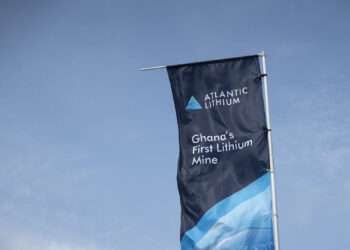The Government of Ghana has unveiled a landmark Joint Action Plan (JAP) designed to combat illicit financial flows in the extractive sector, with a particular focus on artisanal and small-scale gold mining.
The initiative, formalized with the signing of a Joint Communiqué in Accra, marks a coordinated national effort to align the sector with global Anti-Money Laundering and Counter-Terrorist Financing (AML/CFT) standards.
Delivering welcome remarks on behalf of the Minister for Finance, Deputy Minister Thomas Nyarko Ampem described the communiqué as a strong statement of Ghana’s determination to safeguard its financial system and extractive industries.
“This Joint Communiqué is a demonstration of Ghana’s resolve to safeguard the integrity of our financial system, strengthen governance of the extractive sector, and align fully with international AML/CFT standards.”
Thomas Nyarko Ampem, Deputy Minister of Finance

He noted that Ghana’s extractive sector, particularly gold, is both a lifeline and a vulnerability. As the country’s leading source of foreign exchange earnings and a major source of revenue and livelihoods, gold remains critical to economic growth.
However, its prominence makes it a prime target for criminal activities, including illicit financial flows and money laundering.
“If left unchecked, these risks undermine not only the credibility of the sector but also the stability of our broader economy.”
Thomas Nyarko Ampem, Deputy Minister of Finance
The signing ceremony brought together key national regulatory and enforcement institutions.
These included the Bank of Ghana, Financial Intelligence Centre, Ghana Gold Board, Minerals Commission, Ministry of Lands and Natural Resources, Office of the Registrar of Companies, EOCO, the CID of the Ghana Police Service, and the Customs Division of the GRA.
Ghana’s international partners such as the British High Commission and the UK-Ghana Gold Programme also participated.
Preparing for FATF Evaluation

The Deputy Minister further stressed that the artisanal and small-scale mining (ASM) subsector will be a key focus as Ghana prepares for its 2026 Financial Action Task Force (FATF) Mutual Evaluation.
He warned that Ghana cannot afford to be placed on the FATF blacklist, citing the potential economic consequences.
“Blacklisting would mean higher borrowing costs, reduced investment inflows, increased pressure on the cedi, and reputational damage. That is why this Joint Action Plan is critical.”
Thomas Nyarko Ampem, Deputy Minister of Finance
The JAP, which was developed following a high-level roundtable in August, outlines clear responsibilities, timelines, and milestones for each institution engaged in the gold value chain.
It establishes mechanisms for regular inter-agency coordination, monthly follow-up meetings, and progress reporting to track implementation and ensure accountability.
For government, however, the endorsement of the communiqué is only the beginning.
“The true measure of our commitment will be in the effective implementation of the Joint Action Plan.
“With sustained effort and unity of purpose, I am confident that together we will succeed.”
Thomas Nyarko Ampem, Deputy Minister of Finance
Stakeholder Support

Representatives from participating agencies and partners pledged their commitment to the reform agenda.
They noted that improved compliance would not only help Ghana meet international standards but also strengthen investor confidence in the extractive sector.
The Bank of Ghana and the Financial Intelligence Centre emphasized their readiness to provide oversight and ensure that financial institutions remain vigilant against money laundering risks tied to gold transactions.
The Minerals Commission and the Ghana Gold Board committed to enforcing greater transparency in the licensing and trading of gold. Law enforcement agencies, including the CID and EOCO, pledged to step up investigations and prosecutions of illicit mining and related financial crimes.
International partners also lent their backing. A representative of the British High Commission noted that Ghana’s leadership in tackling financial crimes within its gold sector would serve as a model for the region.
With gold exports serving as one of Ghana’s top foreign exchange earners, government officials underscored that tackling illicit flows is a matter of national security and economic survival.
The new JAP, they said, seeks to strike a balance between supporting livelihoods in artisanal mining communities and protecting the integrity of Ghana’s financial system.
The launch of the Joint Action Plan has been widely described as a turning point in Ghana’s efforts to clean up its gold sector. While challenges remain, the coordinated approach among regulators, enforcers, and international partners has raised expectations of tangible progress in the months ahead.
READ ALSO: Market Cheers as Ghana’s Treasury Auction Breaks Four-Week Drought with 15.8% Oversubscription























